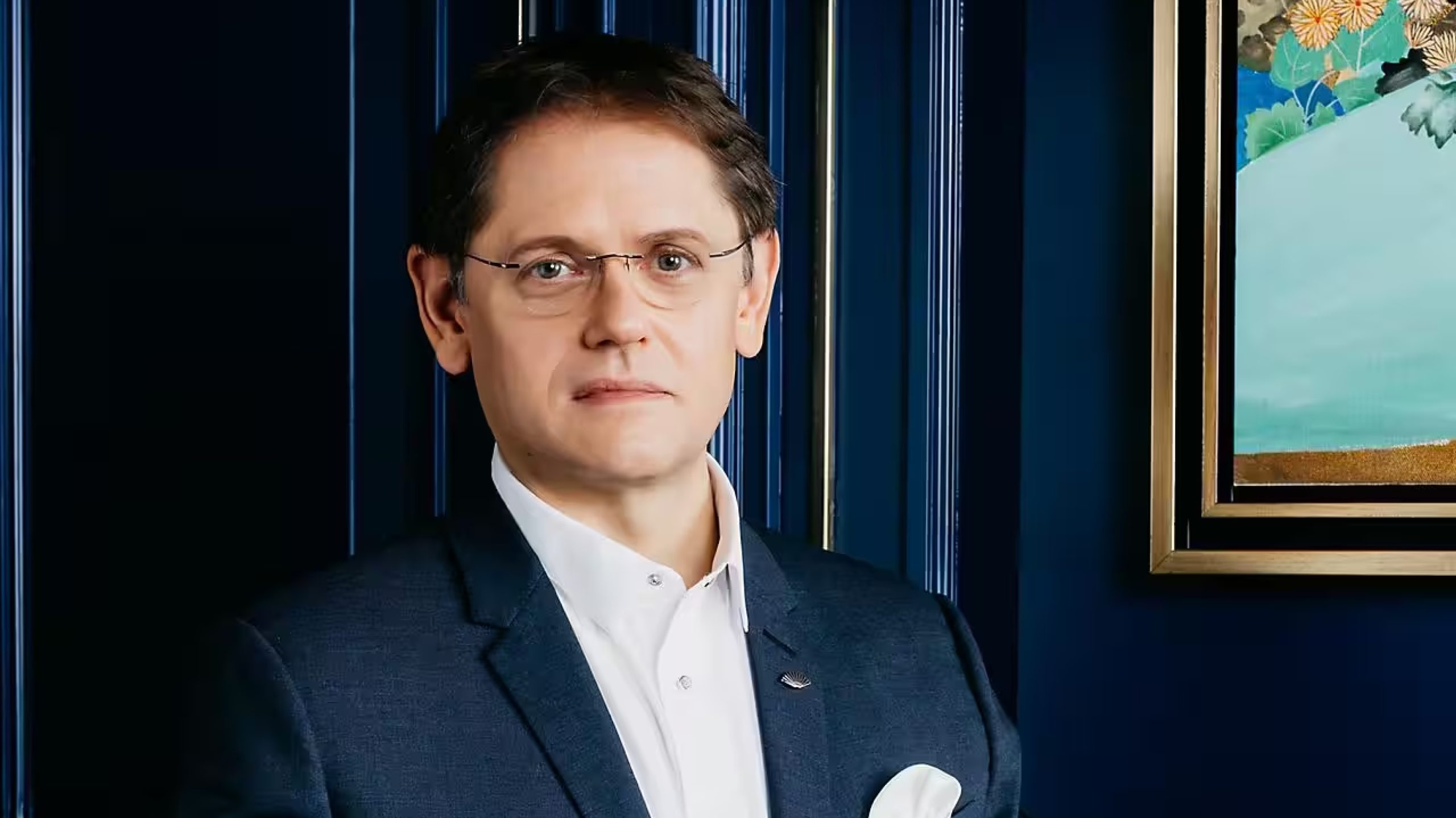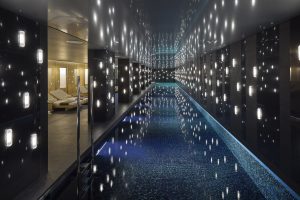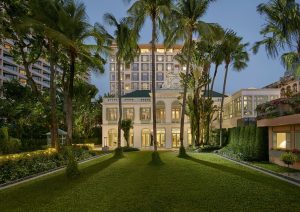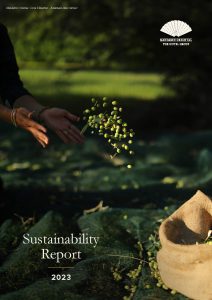


In October, Mandarin Oriental Hotel Group set the hospitality business abuzz when it announced an accelerated ten-year growth strategy that – if delivered – would see the company’s hotel portfolio double in size. The Insider was privileged to delve more deeply into the strategy, thanks to an exclusive Q&A with Group Chief Executive Laurent Kleitman.
Just over a year after joining the company as Chief Executive, Laurent Kleitman was center stage as Mandarin Oriental revealed a new, brand-led and guest-centric vision and strategy that promises an unprecedented era of growth and development for this famous hospitality name.
Dubbed ‘Fans of the Exceptional, Every Day, Everywhere’ the strategy is not just about opening new hotels – though plenty of those are promised – it’s also about redefining the luxury hospitality experience of the future, by embracing innovation while at the same time leveraging the brand’s dual Asian heritage to provide true differentiation from competitors within the luxury sphere.

Among the eye-catching elements of the announcement were plans to expand in regions including the Middle East, Japan and North America, as well as key capital cities in Europe. The company also teased plans for a new Wellness 2.0 concept that “builds on 25 years of expertise and innovation in this space”. And the guest experience will be augmented by the rollout of a new app designed to reduce friction and provide a discrete and direct communication channel with the hotel teams.
The ink was barely dry on the press release announcing the strategy when The Insider was able to learn more about it from none other than Laurent Kleitman himself.
Here’s what he had to tell us…
The Insider (TI): elevating the guest experience appears central to this new growth strategy. Can you give us a flavor of how you see the guest offering evolving in this period?
Laurent Kleitman (LK): Actually, it’s the other way around. Our approach is both brand-led and guest-centric, ensuring that we anticipate and respond to evolving guest expectations. We closely monitor the shifting needs of our guests, enabling us to refine and elevate our offerings to meet those desires. The impact ranges from a myriad of soft touches in design and services, all the way to decisions on the location and physical layouts of both our existing and our future hotels. From the growing demand for immersive cultural experiences and wellness-focused journeys to the increasing blend of business and leisure travel, we continuously refine how we serve our guests.
I could continue, but it’s clear how these trends prompt us to consider the guest journey holistically – from before their stay to after they depart. Rather than isolating services like F&B, spa, or rooms, we take a holistic view of the guest journey, ensuring that every touchpoint, from pre-arrival to post-departure, embodies our commitment to excellence. On top of this sits our commitment to crafting time enriching experiences that transform the ordinary to the exceptional and guests to fans. Every guest touchpoint, no matter how ordinary, can be exceptional. This is our ambition.

TI: How influential to your thinking have been the changes we’re seeing in lifestyle patterns – for example the blending of work and leisure and the rise of the digital nomad?
LK: I touched on some of them already, but naturally these shifts have a tangible impact on our physical spaces. From increasing the number of connecting rooms and suites to accommodate families to designing spaces that seamlessly blend work and dining areas, we are adapting our environments to meet evolving guest expectations. For example, we gradually eliminate the traditional desks from our room design, to replace them with more contemporary multi-purpose tables where guests can work and also enjoy dinner or play games!
The challenge lies in recognizing that a single guest’s needs can shift depending on the purpose of their stay, and even fluctuate within the same stay! Our ability to anticipate and respond to these changes in real-time is a hallmark of our brand. We are celebrated for our legendary service, which is deeply rooted in our ability to empathize with every guest, no matter the context of their stay. It’s often said that service is key, but I invite anyone to stay at a Mandarin Oriental and experience first-hand whether service is merely table stakes – or truly a remarkable differentiator. I’m confident they will find it to be nothing short of exceptional.
TI: One of the major headlines from the announcement was the plan to double your portfolio of properties in the next 10 years. What can you tell us about the strategy and vision that guides this growth plan – thinking in particular about the focus on resort and capital city properties?
LK: Our vision is to be Fans of the Exceptional, every day, everywhere. While we are not yet present in every market, we are fortunate to build upon an exceptionally strong brand, with awareness levels comparable to luxury hotel groups that are three or four times our size. From a business perspective, this presents a clear opportunity for growth, as guests know and wish to stay with us but cannot always do so due to our limited presence in certain key markets.
A glance at our portfolio reveals our strength in Europe and the Middle East, in addition to our strong historic presence in Asia, while also highlighting significant opportunities for expansion. We see particular potential in key markets like the US and Japan, as well as in resort destinations across Central and South America and Southeast Asia. Our strategy of expanding with a second property in major capitals has proven highly successful in London, Hong Kong and our most recent addition in Beijing, while we expect the same from our next opening in Dubai. This reflects the strength and versatility of our brand, allowing us to establish multiple properties within a single destination.
When it comes to development, the term ‘focus’ might suggest a narrower approach. However, we are committed to growing across all markets and property types simultaneously, empowering our development team to drive this growth – and that is exactly what we are doing.
TI: It was interesting to see that you haven’t shied away from embracing technology as part of this strategy. What can we expect of the new app that will be rolled out in 2025?
LK: The core objective of the app is to facilitate and enhance the guest journey, removing any friction along the way. From accessing itineraries and folios to enabling seamless check-in and check-out, as well as an in-app chat function, it offers a range of features designed to meet the needs of today’s discerning traveler.
It’s a way for our guests to be connected to us the way they need to be, and it will allow us to better cater to their needs. I believe the use of technology will increase further the human-to-human relationship, which is the true core of luxury.

TI: The Wellness 2.0 concept taps into what is an ever-growing segment of the tourism and hospitality sector. Can you give us some clues as to what this concept is going to look like and when we might see the first iterations of it?
LK: Without giving away too much I am confident I can say that if you look closer, you could already see it today in certain Mandarin Oriental destinations. What we are doing now is simply structuring the excellence that exists, amplifying it through various iterations of innovation and then scaling it. We appreciate that the wellness needs of each individual are different, and by the way can change depending on the purpose of stay. We therefore do not aim to impose a regime, but to present a variety of offerings that improve both inner and outer strength.
TI: Your development pipeline has some eye-catching properties in it, to say the least. Which would you highlight from among both the newly opened hotels, and pipeline projects, as offering the best illustration of the renewed vision and mission of Mandarin Oriental?
LK: Today we operate 41 hotels and 12 residences and 24 exclusive homes in 26 countries. In addition, we have 28 projects under development across hotels, some with residences and also standalone residences. Asking me to choose a favorite among our 59 properties is like asking me to choose a favorite child – impossible! Each one holds a special place. However, I’m always particularly excited about the next property I’ll be visiting, whether it’s already operating or still under development.

Additionally, the one thing that they all have – and what makes all of them so special – are my colleagues. And there is nothing I enjoy more than engaging with them and seeing and feeling their passion and love for the brand. If I had to single out a few, I would of course highlight on Bangkok and Hong Kong which are the two iconic founding hotels of the Group.
TI: The recent announcement contained a significant chapter on Mandarin Oriental’s place within – and contribution to – the communities in which it operates. How important for you is creating harmonious communities both inside and outside the company?
LK: It’s more than just important – it’s a responsibility we take seriously. We approach this in various ways, but one of my favorite initiatives is the additional paid day off we offer to our colleagues, allowing them to volunteer and give back to their local communities. In 2023 we volunteered for over 52,000 hours, and that’s from a total staff of around 14,000 colleagues. The interest in volunteering is growing fast: in 2023 the number of volunteering hours was up 150% versus 2022, and I expect even higher numbers this year.
Not only do we do good in our community, but we hear fantastic feedback from our colleagues and their wellbeing. It does wonders to oneself to do good for others.
TI: We cannot talk about the hospitality industry these days without also touching on sustainability and corporate responsibility. What would you highlight as some of the most significant activities by Mandarin Oriental in this area?
LK: The approach at Mandarin Oriental has long been to track tangible goals and deliver against them today, not in 10 years. So today we have removed 99% of single use plastics from our operations; we have removed endangered species from our menus; we are extending this to sourcing seafood ethically and have already shifted to sourcing all our agricultural commodities – including coffee, cocoa, vanilla, even paper – ethically.

Of course we are also working towards reducing our carbon footprint, energy intensities, wastage, and making other improvements, but we will not hide behind setting targets so far out that it’s likely someone else will be accountable. Instead, we will continue to lead the industry with what is possible today, not only in 2030 or 2050.
We are proud of being certified as a group by the GSTC (Global Sustainable Tourism Council) and additionally have 15 of our properties certified individually and are working towards certifying all by the end of 2025. We are also partnering with the UN Global Compact focused on battling food wastage, which is a major issue. Most recently, at the first World Sustainable Travel & Hospitality Awards (WSTHA), Mandarin Oriental was named a winner in three categories: ‘World’s Leading Sustainable Supply Chain Programme 2024’, ‘World’s Leading Sustainable Development 2024’, and ‘World’s Leading Sustainable Employer 2024’. A testament to all the hard work done so far, and all the achievements we are striving for tomorrow.
TI: Final question, and it’s around the convergence we’re witnessing between the luxury retail and hospitality sectors, with luxury retail brands opening hotels and hoteliers moving into areas such as private jets. As someone who came to hospitality from the world of luxury lifestyle brands, what’s your take on what we at Glion call the ‘luxury-hospitality crossroads’ and what do you think it will mean for the development of a brand like Mandarin Oriental?
LK: This intersection between luxury retail and hospitality is something we’ve been closely observing in recent years. However, what’s even more significant is the shift in guest behavior, which is driving this trend. Today’s luxury consumers are increasingly seeking experiences over material goods, and this aligns perfectly with our expertise.
At Mandarin Oriental, we have long been masters of crafting exceptional, immersive experiences, which positions us uniquely to meet these evolving needs. As we continue to innovate in luxury hospitality, our focus remains on delivering meaningful, transformative experiences that resonate with our guests.
- To discover more about Mandarin Oriental, click here to visit the website
- If you are interested in a career with the group, click here to visit the dedicated careers section
- To follow Mandarin Oriental on LinkedIn click here or on Instagram click here
Launch your career in international hospitality
Our Bachelor’s in International Hospitality Business is your first-class ticket to a global career.
















